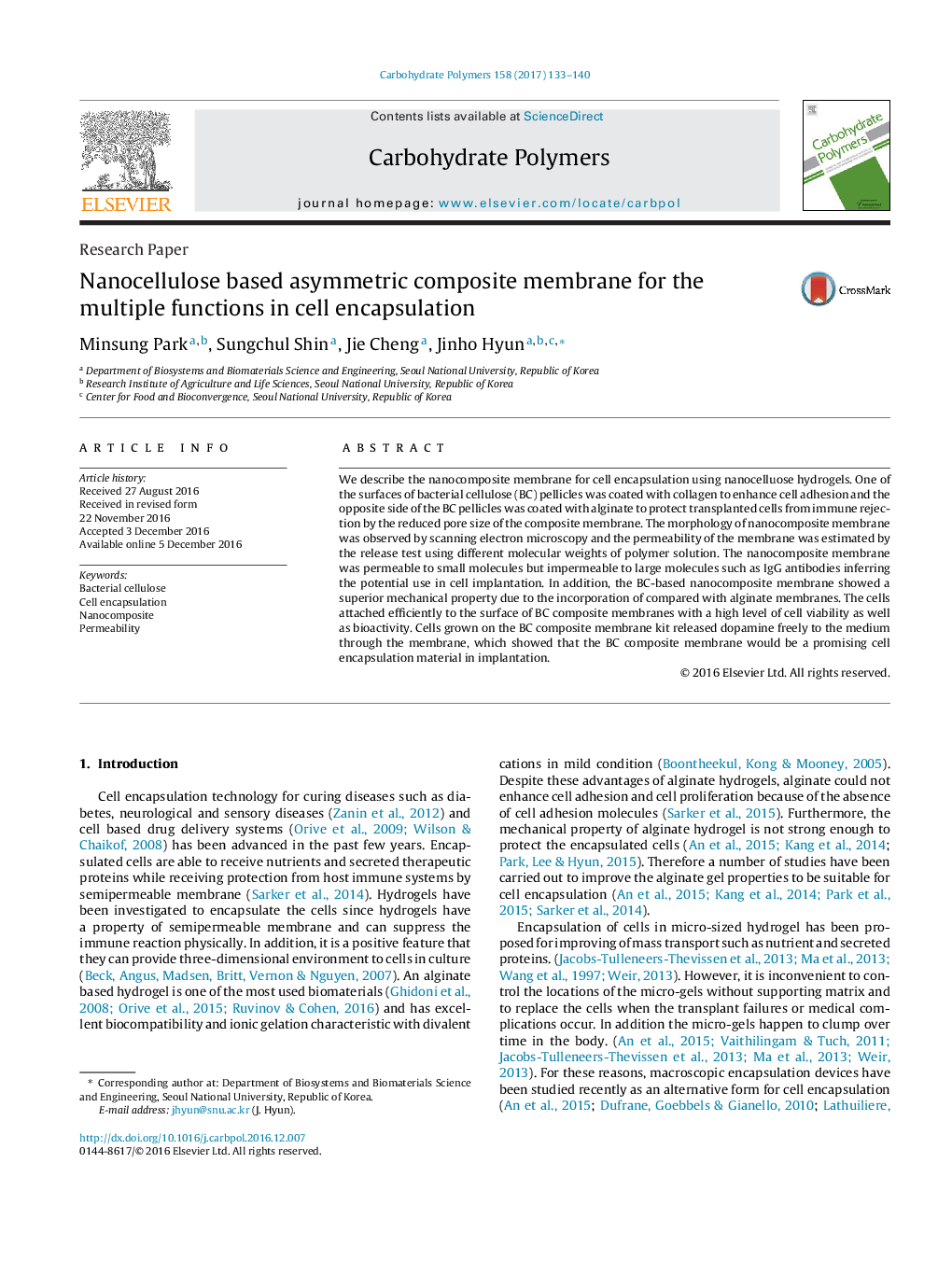| Article ID | Journal | Published Year | Pages | File Type |
|---|---|---|---|---|
| 5157324 | Carbohydrate Polymers | 2017 | 8 Pages |
Abstract
We describe the nanocomposite membrane for cell encapsulation using nanocelluose hydrogels. One of the surfaces of bacterial cellulose (BC) pellicles was coated with collagen to enhance cell adhesion and the opposite side of the BC pellicles was coated with alginate to protect transplanted cells from immune rejection by the reduced pore size of the composite membrane. The morphology of nanocomposite membrane was observed by scanning electron microscopy and the permeability of the membrane was estimated by the release test using different molecular weights of polymer solution. The nanocomposite membrane was permeable to small molecules but impermeable to large molecules such as IgG antibodies inferring the potential use in cell implantation. In addition, the BC-based nanocomposite membrane showed a superior mechanical property due to the incorporation of compared with alginate membranes. The cells attached efficiently to the surface of BC composite membranes with a high level of cell viability as well as bioactivity. Cells grown on the BC composite membrane kit released dopamine freely to the medium through the membrane, which showed that the BC composite membrane would be a promising cell encapsulation material in implantation.
Related Topics
Physical Sciences and Engineering
Chemistry
Organic Chemistry
Authors
Minsung Park, Sungchul Shin, Jie Cheng, Jinho Hyun,
